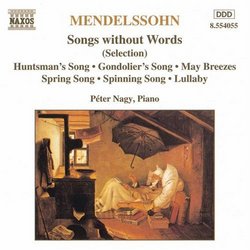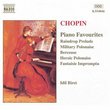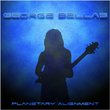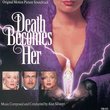| All Artists: Felix [1] Mendelssohn, Peter Nagy Title: Mendelssohn: Songs without Words (selections) Members Wishing: 0 Total Copies: 0 Label: Naxos Original Release Date: 1/1/1997 Re-Release Date: 10/6/2000 Genre: Classical Style: Symphonies Number of Discs: 1 SwapaCD Credits: 1 UPC: 636943405529 |
Search - Felix [1] Mendelssohn, Peter Nagy :: Mendelssohn: Songs without Words (selections)
 | Felix [1] Mendelssohn, Peter Nagy Mendelssohn: Songs without Words (selections) Genre: Classical
|
Larger Image |
CD DetailsSimilar CDs
|
CD ReviewsA Unique but Unnecessary Taste of Mendelssohn's Lieder ohne Hexameron | 08/01/2007 (3 out of 5 stars) "Mendelssohn's 48 Lieder ohne Worte ("Songs Without Words") are simply his most famous piano pieces. Their unpretentious nature, elegance, melodic appeal and varied moods have held a special place in the hearts of many amateur and salon pianists. And to musicologists they are among the most substantial "miniatures" of the Romantic era. Recordings of these popular piano pieces abound everywhere, and like Mussorgsky's Pictures at an Exhibition, they seem to be recorded too much. You can find legendary interpretations of certain favorites by the likes of Horowitz or Cziffra. And you can find omnibus recordings by eminent pianists like Daniel Barenboim.
So what does this particular "highlights" CD produced from Peter Nagy's complete recordings for Naxos have to offer? I can only assume it was meant to offer a taste or "best of" Mendelssohn's miniatures to the layman. But in this design it fails. While Naxos has their hearts in the right place, I really don't think a "selections" recording was necessary. Since only 25 of Mendelssohn's 48 Songs Without Words are featured, this kind of CD won't appeal to the Mendelssohn acolytes and might not even attract newcomers. Those who love Mendelssohn's Songs Without Words could quarrel over which pieces they think should be selected as "highlights." Although the most notorious of the 48 Songs Without Words are featured (Spinning Song, Funeral March, Spring Song and three Gondolier's Songs), these and the other 19 do not represent the most distinctive of Mendelssohn's 48. I must be clear about the reason for my three-star rating, however. It is attributed to the concept behind this recording, not the performances themselves. I am confident that Peter Nagy is an excellent performer of Mendelssohn's pieces. Indeed, he reveals the kind of spirit and musicianship that makes these gems flourish to the ear. George Bernard Shaw wrote that Mendelssohn's Songs Without Words are "too easy for our young lions, but really, I suspect, because they are too difficult." Like Mozart, Mendelssohn's piano writing is delicate and nuanced, requiring a solid technique and yet a supple execution. Nagy has this. He understands Mendelssohn's idiom. In the fussy and sprightly pieces, Nagy is exuberant and provocative. In the melancholy pieces, he is tender, thoughtful and emotionally engaged. To my ear there is nothing "wrong" in his executions. And I could recommend checking out his original Naxos recordings: Mendelssohn: Songs without Words and Mendelssohn: Songs without Words II. But, and this is the bottom line, with so many complete and cheap sets of the Songs Without Words, this recording fails to contend. It doesn't succeed in showcasing the "best of" Mendelssohn's Songs Without Words. And for those new to these pieces who are interested in the best budget-buy, you can find two Volumes of the complete 48 Songs Without Words on the Amadis label for $2.99 each: Songs Without Words 1 and Songs Without Words 2. If you want one of the finest complete recordings, I must recommend Daniel Barenboim's expert realizations Mendelssohn: Songs Without Words, etc.." |

 Track Listings (25) - Disc #1
Track Listings (25) - Disc #1


